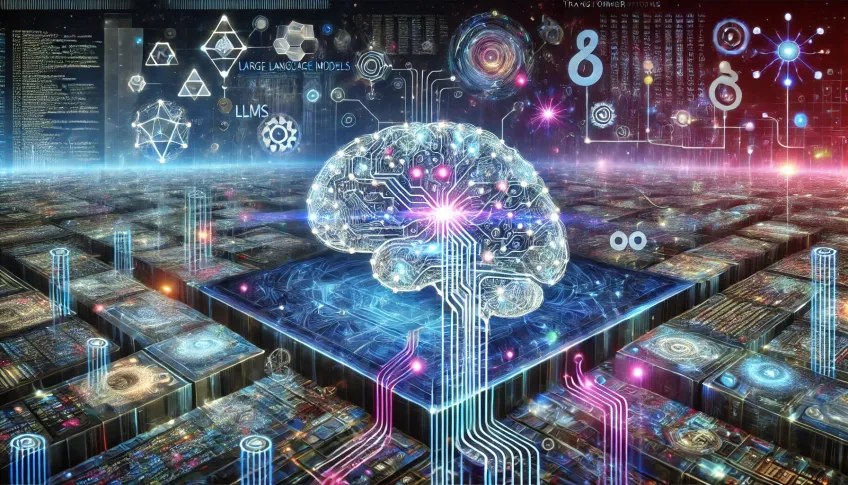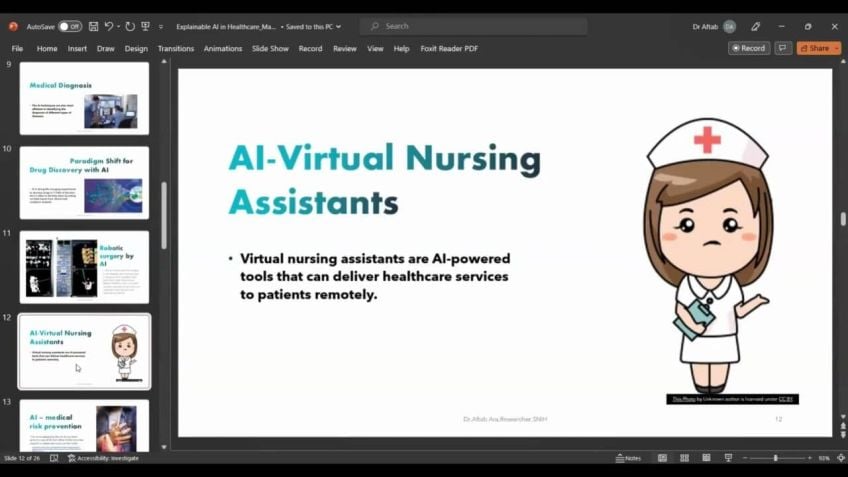
Image source: Forbes, "8 Leading Women in the Field of AI"
AI systems change our daily routines. They make them better and more efficient. But the development of technology without a proper ethical basis can result in unpredictable and potentially harmful effects.
The importance of AI ethics and responsibility lies in providing fair, safe, as well as inclusive solutions for everyone. And the role of women is especially significant in this process. Why? Because their involvement ensures objectivity. It will benefit all industry players: researchers, organizations and institutions such as Google DeepMind Ethics & Society and UNESCO, corporations such as Microsoft, IBM and the leading software company in USA working on innovative AI-based solutions, as well as policy and governance bodies including the Future of Life Institute and the World Economic Forum.
Women's Invisible Labor in AI Technologies
Even with growing interest in technology and initiatives aimed at promoting inclusivity, women remain underrepresented today. Studies show that women make up only about 30% of all IT employees. In some fields such as AI research, this number is even lower. And of course, it's frustrating.
Nevertheless, there are still many bright female personalities who have played important roles in the development of AI ethics. Joy Buolamwini (the founder of the Algorithmic Justice League) is one such example. She is actively fighting the problem of algorithmic bias (especially in the field of facial recognition). Her research indicates that many AI systems are biased against women and people with dark skin. This leads to unfair consequences.
Another striking example is Timnit Gebru. She is an ethnic African American woman and AI researcher who was once part of the Google team. Gebru stated that many AI systems, particularly those analyzing data about people, can reinforce existing social/racial biases. She called for a more responsible development approach. The importance of team diversity was also emphasized.

Image Source: Business Insider
Women face gender bias and stereotypes. They are often considered less competent in technology, which limits opportunities. That’s why females rarely hold senior positions in large tech companies. And their projects receive significantly less funding than men's.
Why Women’s Perspectives Are Essential in AI Ethics
Here are some reasons why women's voices are crucial in shaping AI ethics:
Algorithmic bias: When AI development involves only members of one group, such as men from the same cultural backgrounds, the system may overlook diversity, leading to biased results. Women can identify these problems and help fix them.
Promoting inclusion: Women are actively fighting to make technology accessible and fair for everyone. Their participation in AI development helps create systems that consider the needs of people of different:
ethnicities,
ages,
and social backgrounds.
Reduced ethical blind spots: Having a diverse team is a great way to avoid blind spots in ethical issues. Women bring unique ideas and solutions that help prevent such blind spots, particularly concerning security or data privacy.
Please take a look at some examples of women-led initiatives that show the importance of having diverse perspectives:

Image source : AI4Good Lab, 2019 Cohort
AI for Good: Focuses on using AI to solve social problems like climate change, health, education, etc. Female scientists are involved in developing projects aimed at improving people's lives. First of all, vulnerable groups.
Women in AI (WAI): Organizes events, hackathons, and workshops where women can share their knowledge and experience. This ensures a variety of thoughts.
Fairness, Accountability, and Transparency in Machine Learning (FAT/ML): This well-known conference, with a strong female presence, centers on topics of AI equity/transparency. Women engage in a conversation about enhancing the ethics and fairness of AI.
Coding Girls: The Coding Girls community aims to inspire and educate girls in coding and technology, including AI. It helps create a new generation of women who can influence the future of technology and ensure its ethical development.
Thus, as we can see, women’s participation in developing AI ethics not only contributes to the creation of fairer technologies but also helps arrange a more diverse and inclusive environment where all voices matter.
Key Contributions of Women in Ethical AI
Women's role in AI ethics goes beyond identifying issues; they also take part in developing solutions and creating ethical standards. Let's explore some key areas:

Image Source: Agora Digital Art
1. Identifying and Addressing Bias in Facial Recognition Technology
Joy Buolamwini is actively working to identify biases in facial recognition systems.
Key Issue:
Research shows that many facial recognition systems are less accurate for women and people with darker skin tones, which can lead to discrimination.Joy’s Contribution:
Her efforts focus on developing fairer algorithms, helping to mitigate these biases and create more equitable AI technologies.
2. Advocating for Data Privacy and Accountability in AI Systems
Timnit Gebru raises important questions about data privacy and accountability in AI.
Her Advocacy:
Timnit encourages companies to create effective systems while also taking responsibility for the outcomes of their implementation.Why It Matters:
This approach is essential for building trust between technology developers and society, ensuring responsible AI practices.
3. Ethical Implications of AI in Healthcare, Education, and Criminal Justice
AI is being increasingly used in sensitive fields, where ethical considerations are vital.
Hamid Reza Saeidnia's Focus on Healthcare:
A medical researcher, Hamid emphasizes the importance of ethics in diagnosing and treating diseases with AI. She highlights the need to consider diverse populations to avoid misdiagnosis or bias.Cathy O'Neil on Criminal Justice:
Author of Weapons of Math Destruction, Cathy raises questions about the ethical implications of AI in areas such as criminal law and prison systems. Her work stresses the need for fair and unbiased solutions in these critical sectors.
4. Organizations and Projects Led by Women in AI Ethics
Numerous organizations run by women are actively engaged in AI ethics, contributing to research, education, and collaboration.
Women in Machine Learning (WiML):
This network supports female scientists in artificial intelligence and machine learning.AI Now Institute:
A research organization where women actively study the societal impact of AI systems.Women in Data Science (WiDS):
A project teaching women to analyze data and create diverse, fair models that better represent all populations.
Therefore, women play a very important role in developing and shaping the future of AI ethics and responsibility. Their unique perspectives help to consider the needs of different groups, identify biases, and ensure safety. Women's participation in AI development leads to more inclusive technologies, as well as solutions that are fair and accessible to all. This is important for building trust and responsible relationships between society and new achievements.






